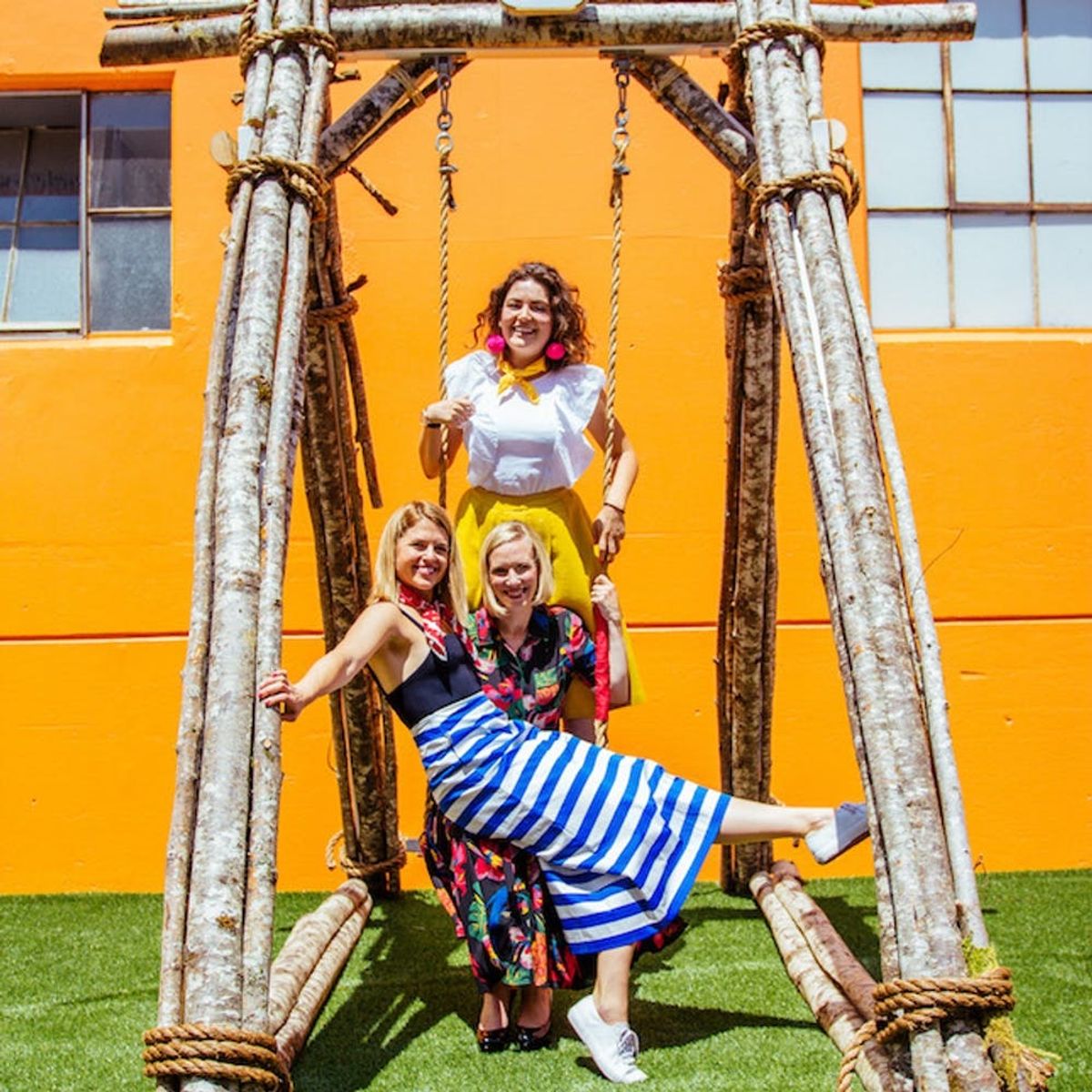Go pro with your side hustle.
6 Highly Successful Female Entrepreneurs Share Their Best Business Tips

If you’re working hard on your side hustle, whether it’s a passion for florals or handcrafted jewelry, it’s good to know that there are role models out there who have launched their own business from a passion project, like a mom who turned selling her kids’ clothes on Instagram into a full-blown company. One of the best cities to start a new biz is Los Angeles, where I recently attended The School of Hustle Summer Camp, produced by Instagram and Hedley & Bennett and held at the latter company’s apron factory in downtown LA. Hundreds of small biz owners and side hustlers attended workshop panels on everything from “Building a Social Media Community Online & Off” to “How to Close a Deal,” all while sipping on kombucha and coffee samples and swinging on a giant outdoor swing.

I got a chance to hear successful women like Ali Webb, founder of Drybar; Janet Hayes, the president of Williams-Sonoma; and Justina Blakeney of The Jungalow talk about what it takes to make a seed of an idea grow into a real company.
The Tips

1. Embrace risks. Part of being an entrepreneur is taking a risk every single day. Ellen Bennett, one of the founders of Hedley & Bennett, took her very first order for 48 aprons while she was working as a cook in a two-star Michelin restaurant. She knew that aprons could be more functional, fashionable, and better quality, so she asked her head chef if she could make new ones. “I could’ve lost my job. I took a risk every step of the way. You have to embrace risks with a smile and make them happen,” says Bennett.

2. Put yourself out there. Webb started Drybar seven years ago with her brother and husband. She and her husband poured their life savings into the venture. “Any great business starts with determination, passion, and hustle,” says Webb. Over the years, Webb has talked to dozens of entrepreneurs who tell her that they are too scared to leave their jobs or lose money. Her advice: “If you have an idea and it doesn’t exist, try it.”
3. Get a work space. Justina Blakeney was working out of her home when she launched 10 years ago, but she knew that she needed to take a leap and rent a workspace. “It costs $1,500 for a workspace, which doubled my overhead, but it was the best decision I made. I’m twice as productive out of the home,” says Blakeney.

4. Make up fake clients. When Brit Rohr, the creator behind Swell Press, began making letterpress goods as a hobby, she had no idea it would someday turn into a successful company. She was making TV commercials, working 18-hour days, and started making invitations on the side after taking a letterpress class. In her one-car garage, she bought a letterpress machine and worked late nights and weekends on creating wedding invitations for fake clients. By pretending to work on projects, she was able to fine tune her craft. She did that for three years before she got a studio and went into full-time production.
5. Outsource to experienced people. After Gaby Dalkin graduated college, she started a food blog called What’s Gaby Cooking and went to culinary school. While working as a private chef, she kept up the blog. She told herself that once the blog generated as much income as she made as a chef, she would blog full time. “The biggest lesson I’ve learned is to outsource to people who have experience,” says Dalkin. She knew she needed to have beautiful, Instagram-worthy photos on her blog, so she contacted a food photographer couple she knew and brought in an expert to help her verbalize her mission. “Every two weeks, we shoot all of the content for the next 14 days,” says Dalkin. Working with food photographers has made a huge difference to the success of What’s Gaby Cooking.

6. You’re no good to anyone if you’re burned out. When you’re working for yourself, you’re constantly hustling and working outside of the nine-to-five grind. Rohr is usually letterpress printing every weekend, but suggests that all entrepreneurs take one day a week off. “Be purposeful with your day off. You feel guilty taking time off when you have a side hustle, but you’re no good to anyone if you’re constantly burned out,” she says.
7. Go against traditional wisdom. Raquel Johnson Barrett started Fun Boy, a luxury inflatable pool toy company, with her husband, brother-in-law, and sister-in-law. “I went against traditional wisdom to start a business with my family, but it makes us nimble. We bring all of our strengths to the table,” says Barrett. Fun Boy got their big break in 2015, when Taylor Swift ordered a bunch of their floats for her Fourth of July pool party (awesome pics here).
Do you have a fave quote or tip from a successful entrepreneur? Tweet us @BritandCo.
(Photos via S. Cole Kiburz)

















